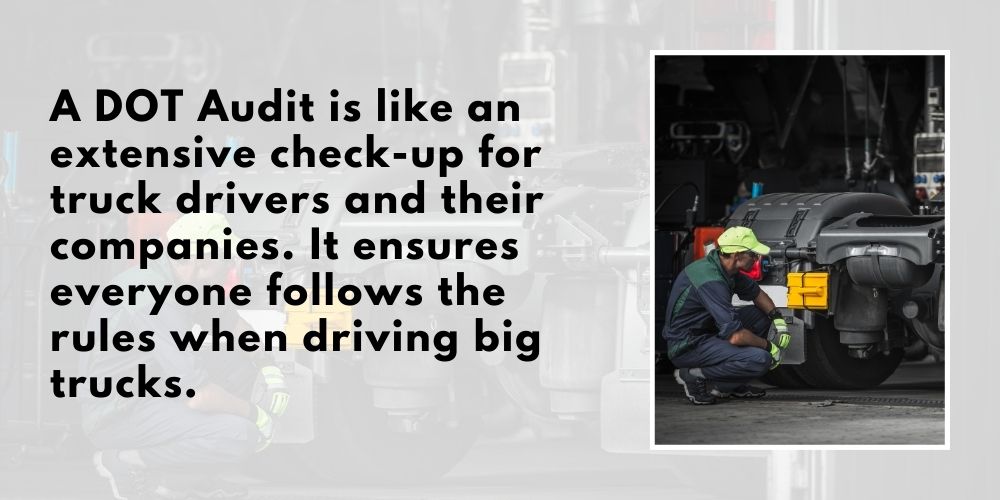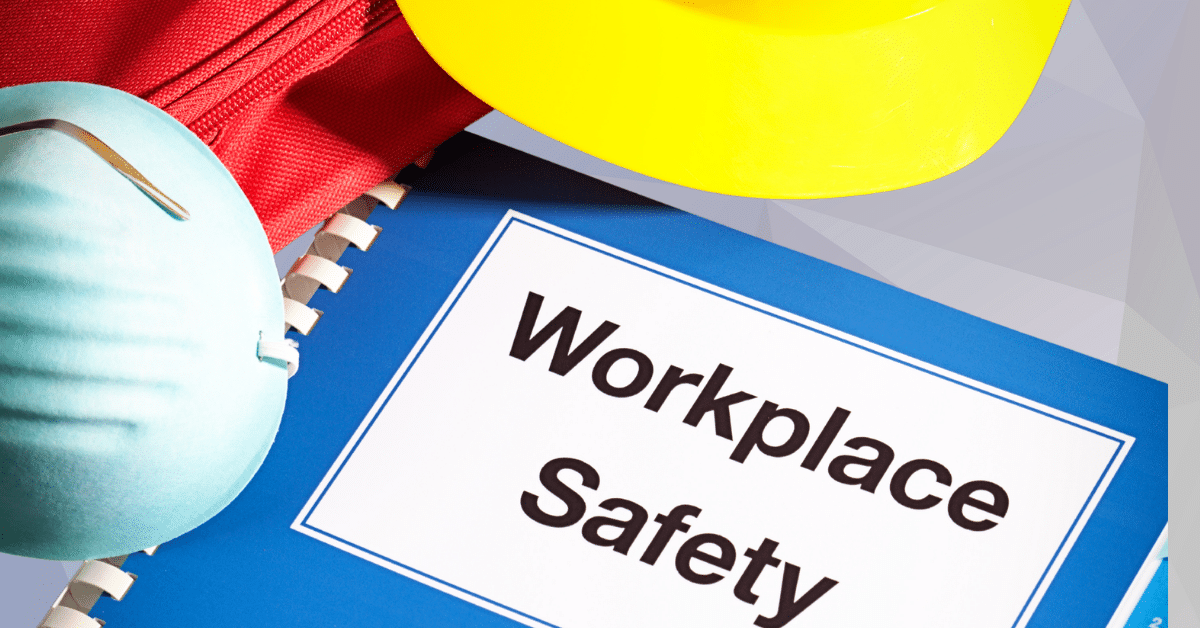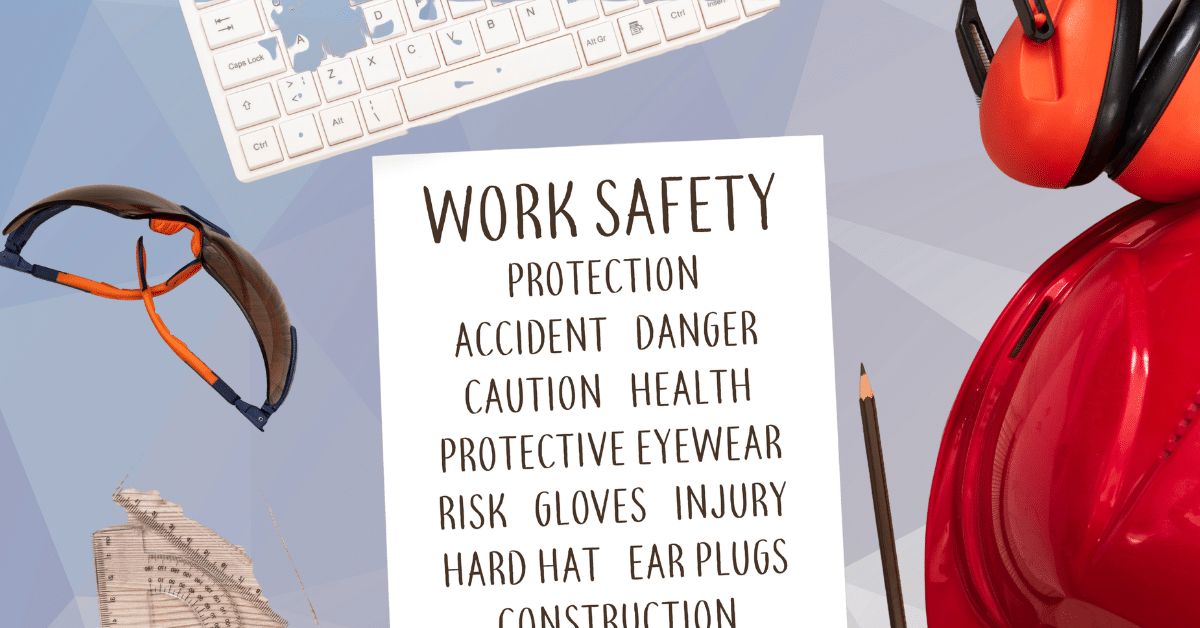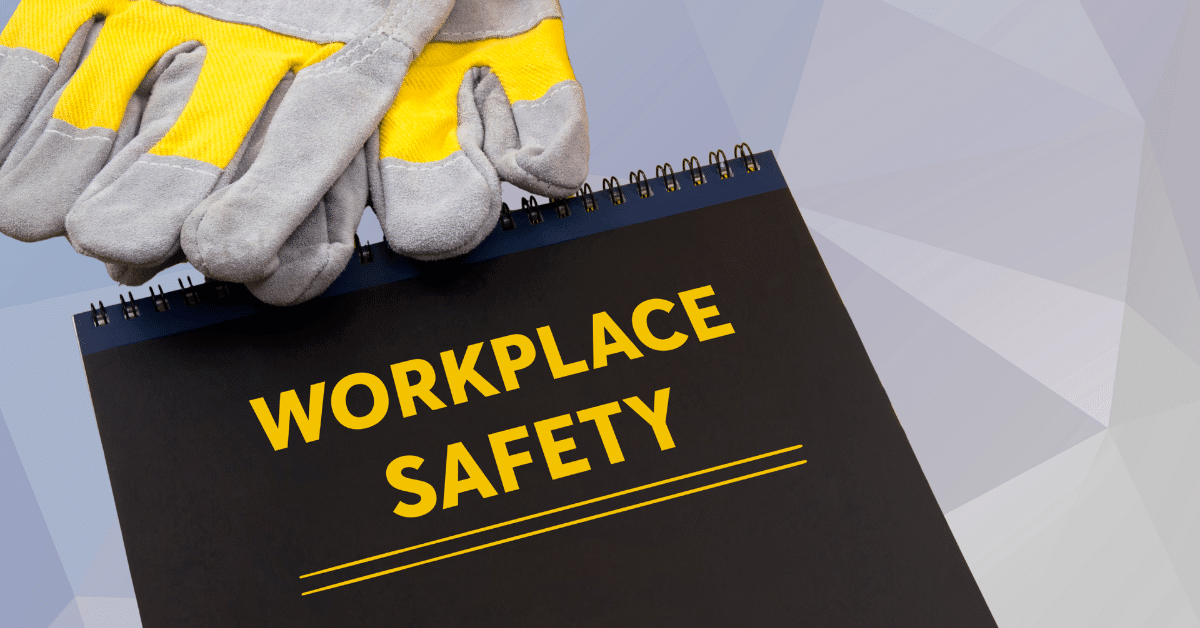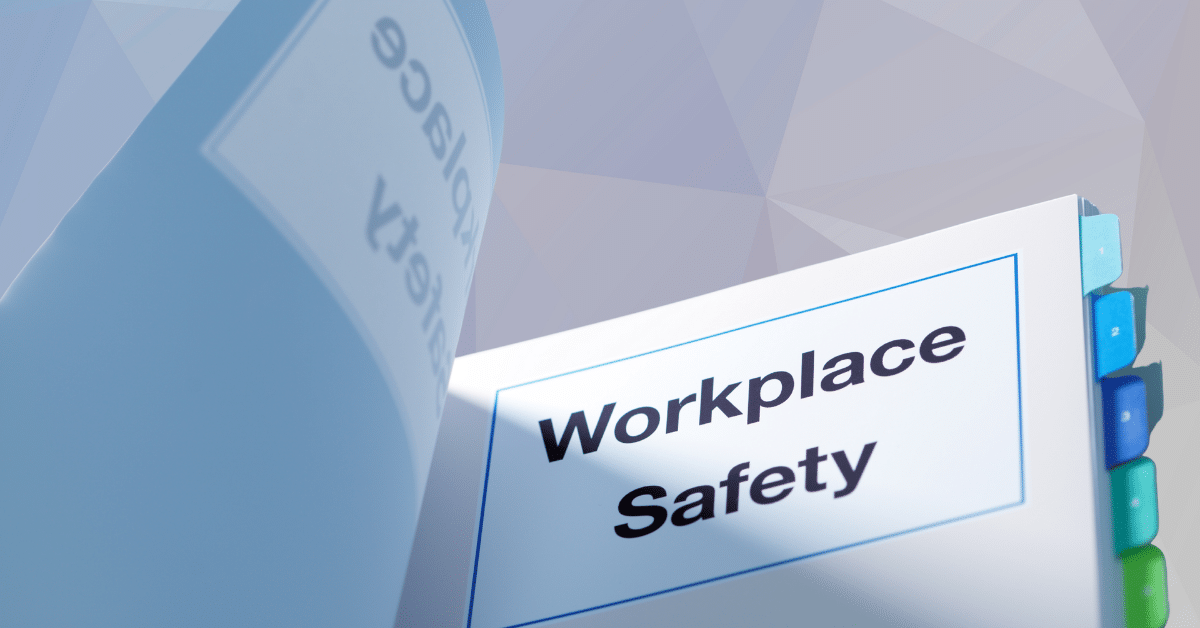FMCSA Training Courses: Mastering DOT And FMCSA Compliance: Your Ultimate Guide To Road Safety
Stop right there!
Have you ever wondered what keeps our roads safe and ensures that trucking companies maintain high standards?
Let’s dive into the world of DOT and FMCSA compliance. These crucial regulations help protect you, your loved ones, and everyone else on the road.
Reasonable Suspicion Training For Alcohol And Substance Abuse (US) Course
DOT and FMCSA
DOT stands for the US Department of Transportation, FMCSA refers to the Federal Motor Carrier Safety Administration. Together, these organizations create and enforce trucking compliance rules that these companies must follow, ensuring the well-being of all road users.
But there’s more to it than just rules and regulations! These compliance guidelines are essential in upholding safety, reducing the risk of accidents, and keeping our roads secure.
What Is DOT Compliance?
DOT compliance refers to following the rules and regulations set by the Department of Transportation to ensure the safety of everyone on the road. For trucking companies, DOT compliance covers driver qualifications, vehicle maintenance, and drug and alcohol testing.
Compliance, Safety, Accountability (CSA) Overview For Drivers (US) Course
What Is FMCSA Compliance?
The FMCSA agency is part of the DOT and focuses on regulating the trucking industry. FMCSA compliance means abiding by the rules set by this agency to keep the roads safe.
ADR 2021 – Agreement Concerning The International Carriage Of Dangerous Goods By Road
Are DOT and FMCSA the Same?
Although the FMCSA is part of the DOT, they are different. The FMCSA focuses on the trucking industry, while the DOT oversees various transportation sectors.
Hazardous Materials Transportation – General Awareness And Security Awareness 2023 (49 CFR) (Course)
How to Ensure FMCSA and DOT Compliance?
Trucking companies compliance ensure these companies stay compliant by understanding and following the rules set by both agencies. This includes maintaining records, conducting safety audits, and using resources such as the FMCSA Compliance Manual.
Case Study – Coggno & Harvard Revolutionizing Training Delivery
How DOT and FMCSA Compliance Affect Trucking Companies
Trucking companies must follow the rules set by both the DOT and FMCSA to operate legally and maintain safety standards. These rules help reduce the risk of accidents and protect the public.
The Importance of FMCSA and DOT Compliance Legal Education
Legal education on these compliance matters is crucial for trucking companies. It helps them understand the rules and how to follow them, which can prevent fines, penalties, and accidents.
SAVE THOUSANDS OF DOLLARS WITH COGGNO PRIME SUBSCRIPTION
What is a DOT Audit?
A DOT Audit is like an extensive check-up for truck drivers and their companies. It ensures everyone follows the rules when driving big trucks.
A special system within the DOT tracks the performance of these truck drivers and companies. It’s called the digital Safety Measurement System (SMS), and it helps the DOT decide who needs an audit.
DOT Vehicle And Roadside Inspections (US) Course
What are the four different types of DOT Audits?
Four different types of DOT audits are:
- New Entrant Safety Audits: When a new company starts, they get this audit to ensure they know the rules.
- Compliance Reviews: These audits check if companies follow all the safety rules.
- Focused Reviews: If a company has a specific safety problem, this audit helps find a solution.
- Special Investigations: If something serious happens, like a bad accident, this audit helps find out what went wrong.
DOT Driver Compliance (US) Course
When Does a DOT Audit Happen?
It can happen at any time! The DOT and FMCSA look at the digital Safety Measurement System (SMS) to see who needs an audit. If they find a problem, they’ll do an audit to help make things better and keep everyone safe on the road.
What is the FMCSA Safety Audit Process?
An FMCSA safety audit reviews a trucking company’s safety records and practices to ensure the company follows FMCSA and DOT rules and maintains safety standards.
How to Prepare for a DOT/FMCSA Safety Compliance Form
Trucking companies must complete a compliance form to prepare for a safety audit. This form helps them organize their records and show they are following the required rules.
Case Study: How Coggno Empowered Costo to Achieve Unprecedented Compliance and Safety Standards
What is the FMCSA Compliance Checklist?
The FMCSA Compliance Checklist is a helpful guide for trucking companies to ensure they follow the rules and regulations. It helps keep the roads safe and helps companies stay out of trouble.
Compliance, Safety, Accountability: Overview
How does the FMCSA Compliance Checklist help trucking companies?
The checklist helps companies stay organized and makes sure they’re doing everything right.
What is included in the FMCSA Compliance Checklist?
The FMCSA DOT checklist has lots of important things for trucking companies to remember.
Driver Qualification File
Q. What is a Driver Qualification File?
A. A Driver Qualification File is a special folder with important papers about each truck driver. It has their driver’s license, medical records, and FMCSA safety training certificates.
Q. When should companies update the Driver Qualification File?
A. Companies should update the file whenever there’s something new to add, like a new training certificate or an updated medical record.
Q. How to maintain a Driver Qualification File?
A. To maintain the file, companies should keep it organized and safe. They should also make sure to add any new information as soon as possible.
DOT Driver Compliance (US) Course
Hours of Service Records
Q. What are Hours of Service Records?
A. Hours of Service Records are like a diary for truck drivers. They write down when they start and stop driving and how long they rest. This helps ensure they don’t drive too long and get tired.
Q. When do drivers need to complete Hours of Service Records?
A. Drivers must complete Hours of Service Records every day on the road. It’s essential to always keep them up to date.
Q. How can companies track Hours of Service Records?
A. Companies can use special software or apps to help track their drivers’ Hours of Service Records. This makes it easy to make sure everyone is following the rules.
Vehicle Maintenance Records
Q. What should be included in Vehicle Maintenance Records?
A. Vehicle Maintenance Records should include information about when the truck was serviced, what was done, and who did the work. This helps make sure the truck stays in good shape.
Q. When do companies need to update Vehicle Maintenance Records?
A. Companies should update Vehicle Maintenance Records whenever the truck gets serviced or repairs are done.
Q. How can companies keep accurate Vehicle Maintenance Records?
A. Companies can use a computer program or a simple notebook to keep track of their Vehicle Maintenance Records. The important thing is to stay organized and make sure everything is recorded.
Alcohol and Drug Testing Program
Q. What is the Alcohol and Drug Testing Program?
A. The Alcohol and Drug Testing Program is a way for companies to ensure their drivers are safe and not using drugs or alcohol while driving.
Q. When do companies need to conduct drug and alcohol tests?
A. Companies must conduct tests when hiring new drivers, after accidents, and sometimes randomly.
Q. How can companies ensure compliance with the Alcohol and Drug Testing Program?
A. Companies can follow the rules set by the FMCSA and have a clear plan for testing their drivers. They should also keep good records of all tests and their results.
Enroll in Drug-Free Courses:
- Alcohol Abuse: 01. Training Responsibilities | Training Courses
- Drug-Free 101: Employee Essentials
- Drug-Free 201: Supervisor Essentials
Accident Register and Accident Files
Q. What is an Accident Register?
A. An Accident Register lists all the accidents in which a company’s trucks have been involved. It helps companies learn from their mistakes and make improvements.
Q. When should companies update their Accident Register?
A. Companies should update their Accident Register as soon as possible after an accident happens.
Q. How can companies maintain an Accident Register and Accident Files?
A. Companies can use a computer program or a simple notebook to keep their Accident Register and Accident Files organized and up to date.
Accident-Related Courses:
- Accident Investigation Online Training
- Accident Investigation For Supervisors And Managers (Course)
- Accident And Breakdown Procedures (US) Course
Hazardous Materials Regulations
Q. What are Hazardous Materials Regulations?
A. Hazardous Materials Regulations are special rules for trucks that carry dangerous things, like chemicals or explosives. They help keep everyone safe.
Q. When do companies need to follow Hazardous Materials Regulations?
A. Companies need to follow these regulations whenever they’re transporting hazardous materials.
Q. How can companies ensure compliance with Hazardous Materials Regulations?
A. Companies can follow the rules set by the FMCSA and ensure their drivers are trained to handle hazardous materials safely.
Insurance and Financial Responsibility
Q. What is required for FMCSA Insurance and Financial Responsibility?
A. Trucking companies need to have enough insurance to cover any accidents or problems that might happen.
Q. When do companies need to provide proof of Insurance and Financial Responsibility?
A. Companies need to provide proof when they first get their operating authority, and then they should keep it up to date.
Q. How can companies stay compliant with Insurance and Financial Responsibility requirements?
A. Companies can work with an insurance agent to ensure they have the right coverage and keep their policies current.
Handler and Driver Hazardous Materials by Ground (Course)
Operating Authority and Registration
Q. What is Operating Authority and Registration?
A. Operating Authority and Registration are like special permission slips for trucking companies to do business.
Q. When do companies need to obtain Operating Authority and Registration?
A. Companies must get this permission slip before operating as a trucking company.
Q. How can companies maintain their Operating Authority and Registration?
A. Companies need to follow all the rules set by the FMCSA and keep their registration up to date. They should also make sure to renew it when it’s time.
Safety Rating and Corrective Action Plan
Q. What is a Safety Rating?
A. A Safety Rating is a grade that the FMCSA gives trucking companies based on how well they follow the rules and keep everyone safe.
Q. When is a Safety Rating assigned to a company?
A. A Safety Rating is assigned to a company after the FMCSA has reviewed them. This can happen during an audit or after an investigation.
Q. How can companies improve their Safety Rating and implement a Corrective Action Plan?
A. Companies can improve their Safety Ratings by fixing any problems found by the FMCSA and following all the rules. They can also create a Corrective Action Plan to help them follow the rules and keep everyone safe. This is why we encourage individuals to take DOT safety training.
Q. What is the FMCSA Clearinghouse and its Role in Compliance?
A. The FMCSA Clearinghouse is a database that tracks drug and alcohol testing results for commercial drivers. Trucking companies must use this database to ensure their drivers comply with testing requirements.
Motor Carrier Compliance and Safety Responsibilities
Motor carriers, such as trucking companies, must follow DOT safety compliance and FMCSA rules. This includes maintaining their vehicles, hiring qualified drivers, and conducting drug and alcohol tests.
What Is The FMCSA ELD Compliance Requirement?
The Electronic Logging Device (ELD) rule is an FMCSA requirement for commercial drivers. ELDs track driving hours and help ensure drivers follow Hours of Service rules.
How to Keep Your DOT# and MC No. For FMCSA Compliance
To keep your DOT number and Motor Carrier (MC) number, you must maintain FMCSA compliance. This includes following rules on driver qualifications, vehicle maintenance, and drug and alcohol testing.
What Is The Difference Between FMCSA And DOT Regulations?
While FMCSA and DOT safety regulations aim to ensure road safety, FMCSA rules are specific to the trucking industry. DOT rules cover various transportation industries, including aviation, rail, and maritime.
What are DOT FMCSA Drug and Alcohol Policy Requirements?
The DOT and FMCSA require trucking companies to have drug and alcohol testing programs. These programs help ensure that drivers are not under the influence while operating commercial vehicles.
The FMCSA 5 Panel Drug Test
The FMCSA 5-panel drug test checks for five common types of drugs: marijuana, cocaine, amphetamines, opiates, and phencyclidine (PCP). Trucking companies must administer this test to ensure drivers are not using these substances.
Substance Abuse: 01. Training Responsibilities
What Are FMCSA’s 7 Basics?
The FMCSA’s 7 Basics are rules that trucking companies must follow to maintain compliance. These include maintaining proper records, following Hours of Service regulations, and conducting vehicle inspections.
Maximize Training, Minimize Costs With Coggno Prime
The FMCSA 7/3 and 8/2 Split Sleeper Berth Rules
The FMCSA allows commercial drivers to split their required 10 hours of off-duty time into two separate periods using the 7/3 or 8/2 split sleeper berth rules. This helps drivers manage their work and rest schedules more effectively.
What is FMCSA 8-Day Exemption and 8-Hour Rule?
The 8-day exemption allows drivers to extend their driving time under specific conditions. The 8-hour rule requires drivers to take a 30-minute break after 8 hours of driving.
How To File A Complaint With FMCSA?
If you believe a trucking company is not following FMCSA rules, you can file a complaint with the agency. This helps maintain safety standards and ensures that companies are accountable for their actions.
What are DOT/FMCSA Regulation 393.43 – Brake System Requirements?
Regulation 393.43 outlines the required brake system components for commercial vehicles. This ensures that trucks have proper stopping power to prevent accidents.
How To Meet DOT Training Compliance With Online Training?
Online training is a great option to meet DOT training compliance. It’s easy, fun, and you can do it from anywhere!
One place to find online training is Coggno. Coggno has many DOT compliance courses that can help you learn about DOT rules and how to follow them. You can learn at your own pace and don’t have to worry about being in a classroom.
The best part is that Coggno’s online training will help you meet all the training requirements for the DOT FMCSA compliance checklist. You’ll learn about important topics like driver safety, hazardous materials handling, and vehicle inspections.
Furthermore, with DOT compliance training, you can keep track of your progress and make sure you’re learning everything you need to know. You can even take quizzes and tests to see how well you’re doing!
Once you finish your training, you’ll get an FMCSA certification that will prove you have taken and completed the course. It is important because it proves you’ve learned all the DOT rules and are ready to hit the road safely.
Don’t wait any longer now, take your DOT safety compliance training online from Coggno.
DOT Vehicle And Roadside Inspections (US) Course
FAQs On Trucking Company Compliance
FAQ 1: Why is training important for trucking compliance?
A: Training is crucial for trucking compliance because it ensures that drivers and other personnel understand and adhere to regulations set by authorities like the FMCSA (Federal Motor Carrier Safety Administration). Proper training helps maintain safety standards, reduce accidents, and avoid legal penalties.
FAQ 2: What types of certifications are required for trucking compliance?
A: Certifications required for trucking compliance include CDL (Commercial Driver’s License), HAZMAT endorsement for handling hazardous materials, and other specialized training certifications such as the DOT (Department of Transportation) Medical Examiner’s Certification for drivers’ health assessments.
FAQ 3: How does trucking compliance training benefit a trucking company?
A: Trucking compliance training benefits a trucking company by reducing the risk of violations, which can lead to costly fines and legal issues. It also improves safety, enhances the company’s reputation, and ensures that the fleet operates within legal guidelines.
FAQ 4: What are the consequences of non-compliance in the trucking industry?
A: The consequences of non-compliance in the trucking industry can include heavy fines, suspension of operations, increased insurance premiums, and potential legal actions.
Not complying with trucking compliance can also lead to accidents, which can harm drivers, cargo, and the public, thereby damaging the company’s reputation and financial standing.
FAQ 5: How often should trucking compliance training be conducted?
A: Trucking compliance training should be conducted regularly, with updates provided whenever there are changes in regulations or industry standards. Typically, annual refresher courses are recommended, along with ongoing training for new regulations or specific compliance issues that arise.
FAQ 6: What is the importance of trucking company compliance training for a trucking company?
A: Compliance training is essential for a trucking company to ensure that all employees are knowledgeable about current laws and regulations. This helps maintain operational legality, enhance safety standards, and prevent costly fines and legal issues that arise from non-compliance.
FAQ 7: Which certifications are vital for ensuring trucking company compliance?
A: Vital certifications for trucking company compliance include those for drivers, such as the CDL and specific endorsements like HAZMAT, as well as certifications for compliance officers and safety managers, such as those offered by the North American Transportation Management Institute (NATMI).
FAQ 8: How does certification improve a trucking company’s compliance status?
A: Certification improves a trucking company’s compliance status by ensuring that all personnel are trained to the highest standards and understand the complexities of compliance regulations. This leads to better adherence to laws, fewer violations, and a safer, more efficient operation.
FAQ 9: What are the risks of neglecting trucking company compliance training in a trucking company?
A: Neglecting compliance training can lead to numerous risks, including legal penalties, increased accident rates, higher insurance costs, and damage to the company’s reputation. It can also result in operational disruptions if the company is found to be non-compliant during inspections or audits.
FAQ 10: How can a trucking company stay updated with trucking company compliance requirements?
A: A trucking company can stay updated with compliance requirements by subscribing to industry newsletters, attending relevant workshops and seminars, and regularly consulting with legal and compliance experts. Continuous training programs and certifications for staff ensure that everyone stays informed about the latest regulations.
Bottom Line
DOT and FMCSA compliance is essential for trucking companies to ensure the safety of everyone on the road.
By understanding and following the rules set by these agencies, trucking companies can maintain high safety standards, avoid fines and penalties, and protect the public.

